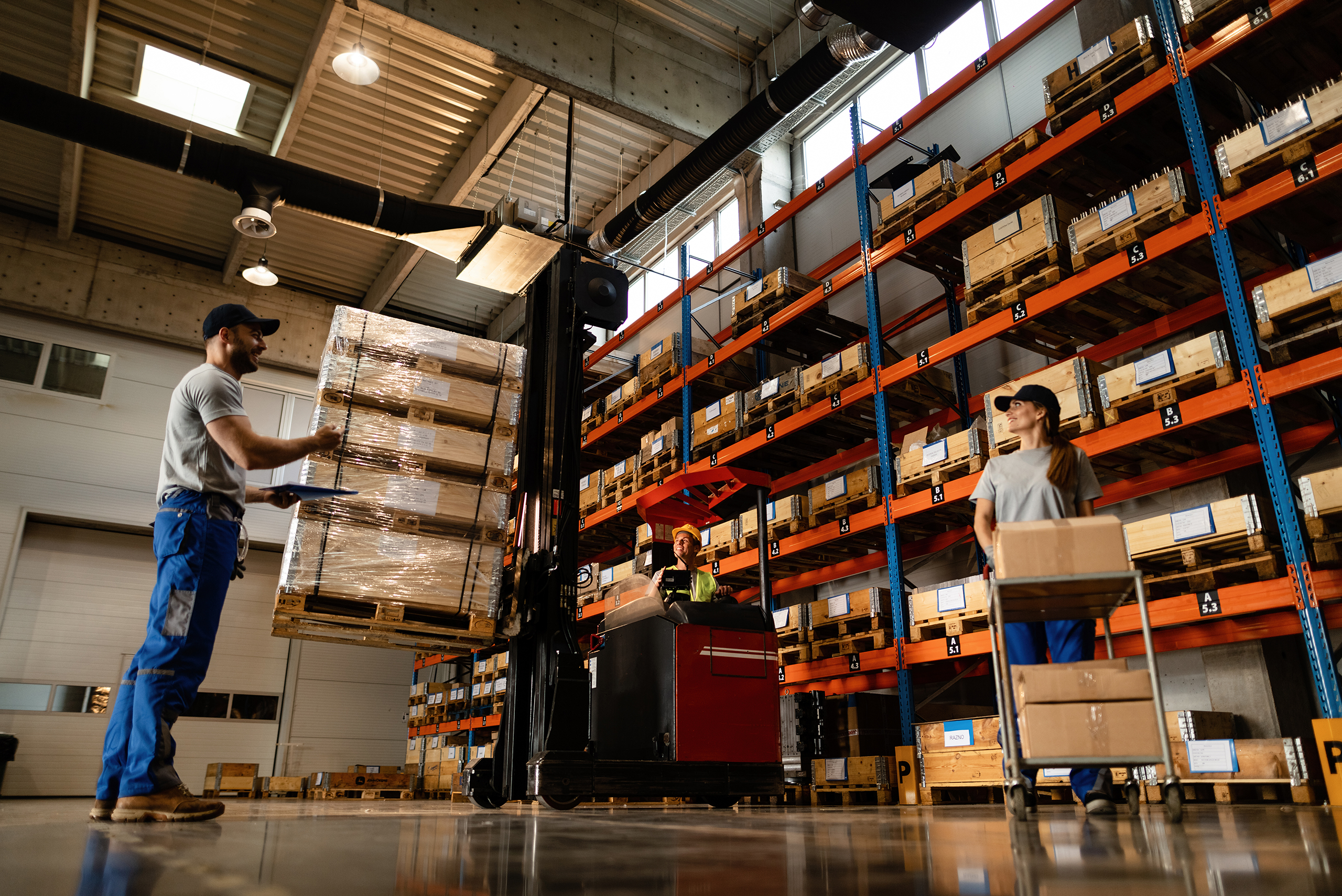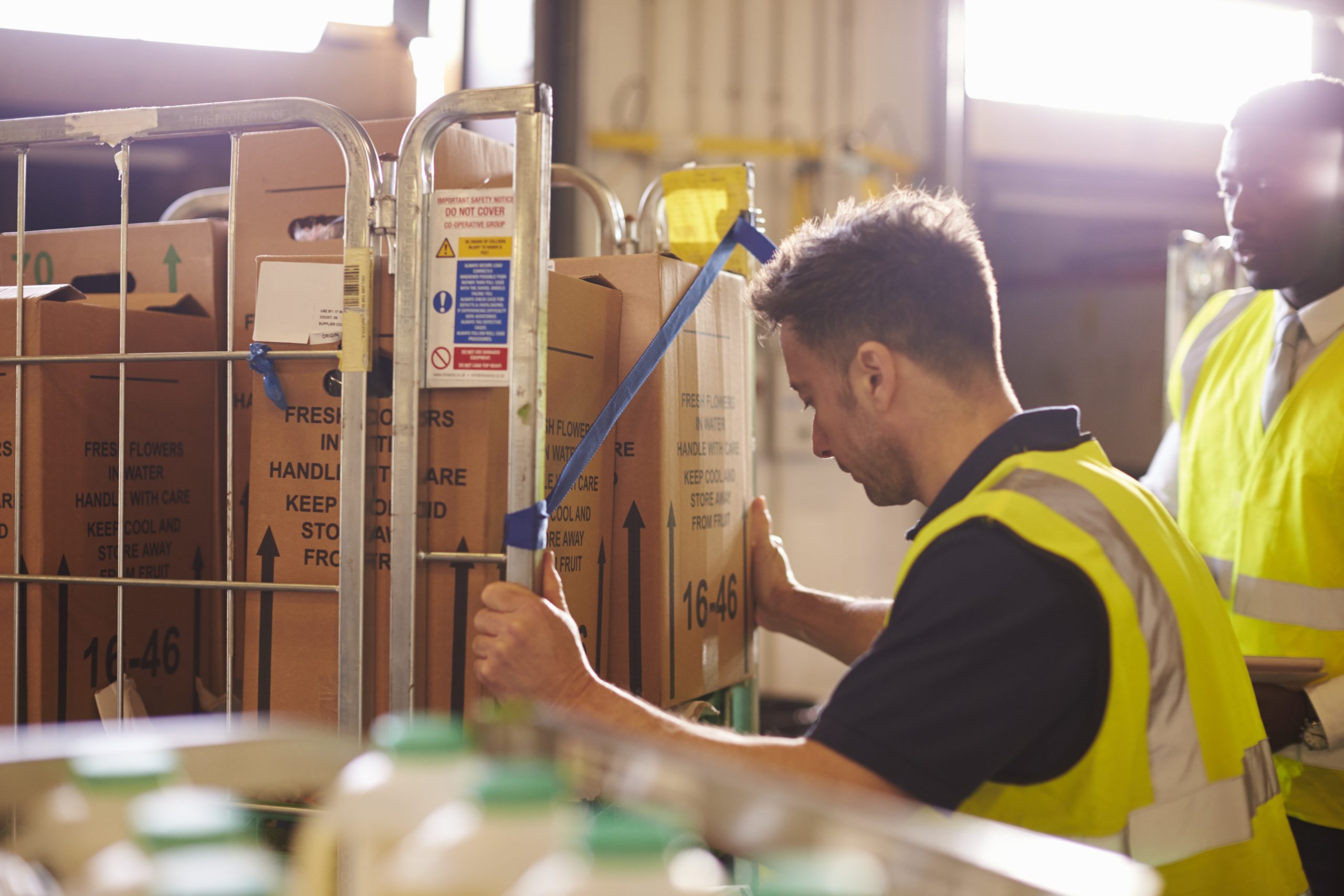In the manufacturing industry, the customer experience is defined not only by the quality of the final product, but also by the efficiency of how it reaches the final customer. Companies that manage to optimize their logistics are able not only to reduce costs, but also to improve customer satisfaction, increasing customer loyalty and fostering long-term business relationships.
In this blog, today we tell you how efficient logistics can transform the customer experience in the manufacturing industry and why having an integrated logistics solutions provider, such as MBR, is key to succeed in this area.
The importance of logistics in the manufacturing industry and customer experience
The key role of logistics in customer experience and satisfaction
Logistics is a whole system that aims to connect production with the end customer. The manufacturing industry is an area where most of the processes are complex and delivery times are critical. Therefore, it is important to have efficient logistics to ensure that products arrive on time, without errors or damage. This level of precision is vital to maintain the customer’s confidence and ensure a positive experience. A well-managed supply chain enables companies to meet promised deadlines, resulting in increased customer satisfaction and loyalty.
Impact on costs and production times
But optimized logistics not only improves the customer experience, it also has a direct impact on operating costs and production times. When manufacturing companies can reduce transit times, minimize unnecessary warehousing and improve coordination between different stages of production, they are able to operate even more efficiently. And this not only allows them to fulfill orders in record time, but also generates significant savings, which, in turn, translate into more competitive prices.
Strategies to optimize logistics in the manufacturing industry
Automation of logistic processes
The implementation of advanced technology, such as automation, plays a key role in optimizing logistics. For example, the use of inventory management software allows manufacturing companies to control their processes in a more accurate and fast way. Automation not only minimizes human error, but also speeds up workflow, improves operational efficiency and ensures that products reach the customer in the shortest possible time, as mentioned above.
Efficient warehousing and inventory control
Warehousing is another crucial component of efficient logistics. An optimized warehousing system, combined with accurate inventory control, makes sure that companies can meet customer demand. Technologies such as RFID (Radio Frequency Identification) and WMS (Warehouse Management System) systems enable real-time tracking of products, providing traceability and ensuring that customers receive exactly what they ordered, without delays or inconveniences.
Third-party logistics (3PL) as a strategic ally
Having an external logistics provider, also known as a Third Party Logistics (3PL), can be a key strategic ally for manufacturing companies. Companies such as MBR offer comprehensive and customized logistics solutions that allow a manufacturing company to outsource inventory management, distribution or transportation, ensuring on-time delivery and optimizing resources. This takes the operational burden of logistics off companies’ shoulders, allowing them to focus on their production and improve their customers’ experience.
Benefits of efficient logistics for customer experience
Shorter delivery times and increased satisfaction
One of the most obvious benefits of optimizing logistics is the reduction of delivery times. Customers expect their products to arrive on schedule and without problems, so efficient logistics ensures that this happens. By improving response capacity as well as reducing transit times, manufacturing companies can meet and, in many cases, exceed their customers’ expectations, which strengthens the business relationship to increase the likelihood of future purchases.
Transparency in order tracking
Transparency is a factor that greatly influences the customer experience. Advanced logistics systems allow companies to provide their customers with real-time updates on the status of their orders, increasing confidence and reducing uncertainty. Having effective tracking tools lets customers know exactly when they will receive their products, which improves their experience and reduces the anxiety associated with waiting times.
Proper handling of claims and returns
Efficient logistics not only focuses on delivery, but also on returns and claims management. When products do not meet expectations or are damaged in transit, having an agile and efficient process to handle these situations is crucial to maintain a good relationship with the customer. Companies that handle returns quickly gain the trust of their customers and, at the same time, improve their reputation in the market.
Direct impact on customer experience, loyalty and retention
Logistics optimization also has a direct impact on customer retention. Companies that consistently meet customer expectations and provide reliable delivery services are rewarded with more loyal customers who are willing to recommend the brand. This translates into long-term growth and a competitive advantage.
Logistics as a competitive advantage in customer experience
In the manufacturing industry, efficient logistics is not just another component of the process, but a competitive advantage that can transform the customer experience. Optimizing warehousing, automating processes and collaborating with specialized logistics providers are key strategies for improving customer satisfaction and reducing operating costs.
Companies like MBR stand out by offering comprehensive and customized logistics solutions that guarantee on-time delivery, improve efficiency and provide a superior customer experience.
If you are looking to optimize your logistics operations and improve your customers’ experience, MBR is the ideal choice for your industrial plant.






